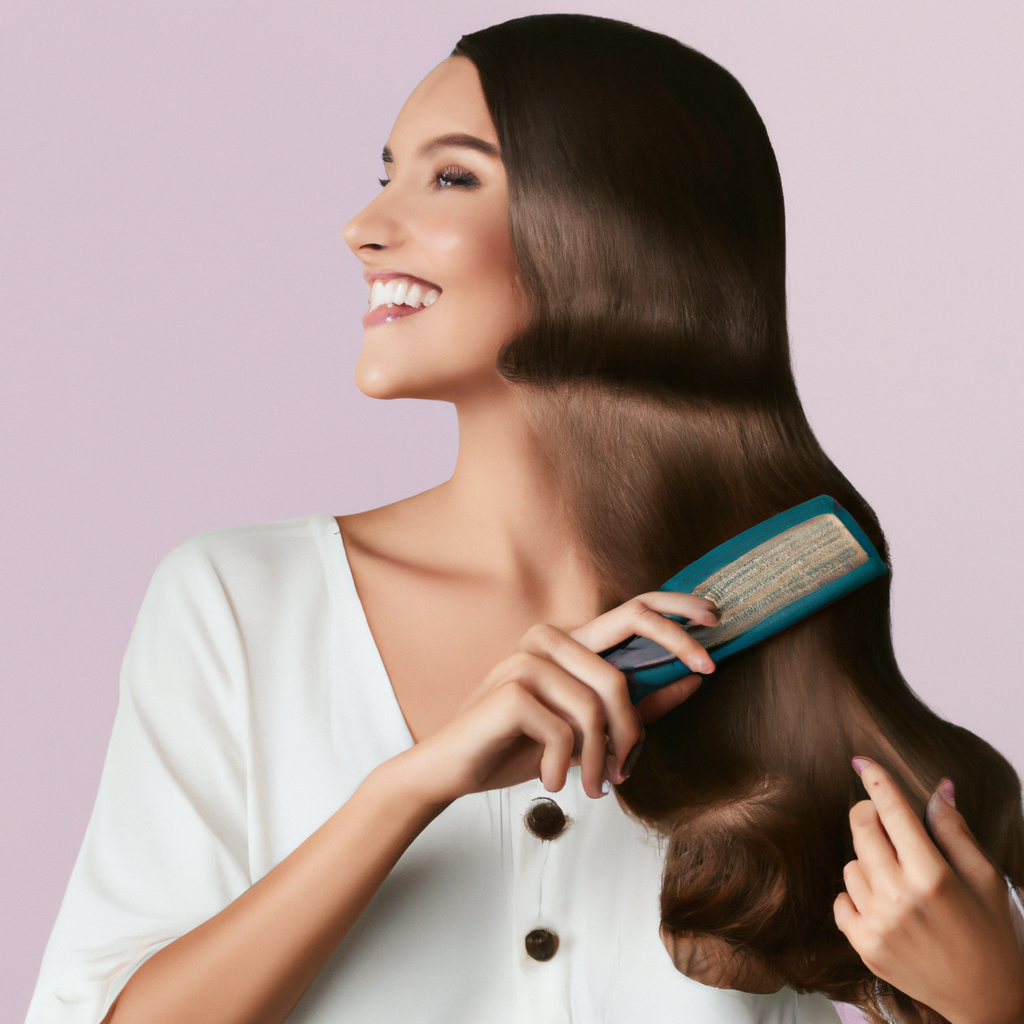Spending a glorious day at the beach is undeniably a delightful experience, but it often leaves us with the lingering question of how to protect and care for our precious locks. After all, the combination of saltwater, sun exposure, and sand can wreak havoc on our hair. Worry no more, as we’ve gathered some helpful tips and tricks to ensure that your mane stays healthy, hydrated, and fabulous during your beach adventures. So, grab your sunscreen and shades, and get ready to learn how to keep your hair looking its best while enjoying the sun, sand, and surf! Spending time at the beach is a wonderful way to relax and enjoy the summer months. However, the sun, saltwater, chlorine, and other environmental factors can take a toll on your hair. It’s important to take steps to protect and care for your hair to keep it looking and feeling its best. In this article, we will discuss various strategies to protect your hair from the sun, prevent damage from saltwater and chlorine, minimize hair loss, maintain moisture, prevent tangles and breakage, deal with frizz, manage greasy hair, protect colored hair, and repair damaged hair. By following these tips, you can enjoy your time at the beach without worrying about your hair. Let’s dive in!
Protecting Your Hair from the Sun
The summer sun can be quite harsh on your hair, causing it to become dry, dull, and prone to breakage. To shield your hair from the sun’s harmful rays, wearing a hat is a simple yet effective solution. Choose a wide-brimmed hat or a hat made from a UPF-rated fabric to provide maximum protection to your scalp and hair. Not only will a hat offer shade, but it will also add a stylish touch to your beach attire.
In addition to wearing a hat, using sunscreen specifically formulated for your hair is another important step in protecting it from sun damage. Look for hair care products that contain UV filters or choose a leave-in sunscreen spray that can be applied directly to your hair. Apply the sunscreen evenly from the roots to the ends and reapply it every couple of hours or after swimming to ensure ongoing protection.
To further safeguard your hair from the sun, incorporating a leave-in conditioner into your beach hair care routine is crucial. Apply a generous amount of leave-in conditioner before heading out into the sun to create a protective barrier that locks in moisture and prevents your hair from drying out. This will leave your hair feeling soft, hydrated, and nourished even after a day spent under the sun.
Preventing Damage from Saltwater
Taking a dip in the ocean is undoubtedly refreshing, but saltwater can be quite damaging to your hair. The high concentration of salt can strip away your hair’s natural oils, leaving it dry and brittle. To minimize damage from saltwater, make sure to rinse your hair with fresh water after swimming. This will help remove any residual salt and minimize its drying effects.
In addition to rinsing with fresh water, using a deep conditioning treatment is key to restoring moisture and preventing further damage. Opt for a deep conditioner that is specifically designed to repair and nourish sun-damaged hair. Apply the deep conditioner to your hair, focusing on the ends, and leave it on for the recommended amount of time before rinsing it out. This will help replenish lost moisture and leave your hair feeling silky smooth.
When your hair is wet, it is more susceptible to breakage. To prevent unnecessary damage, avoid brushing wet hair. Instead, use a wide-tooth comb or your fingers to gently detangle your hair. Start from the ends and work your way up to the roots to minimize tugging and breakage. By following these steps, you can keep your hair healthy and beautiful even after a day at the beach.

Avoiding Damage from Chlorine
If you’re planning to take a dip in the pool, chlorine can wreak havoc on your hair. It strips away the natural oils, leaving your hair dry, brittle, and prone to breakage. To protect your hair from chlorine damage, wetting your hair with fresh water before swimming is crucial. By saturating your hair with clean water, it will absorb less chlorine and minimize the harmful effects.
In addition to wetting your hair beforehand, applying a leave-in conditioner is essential in combating chlorine damage. The conditioner creates a barrier that helps to preserve your hair’s moisture and prevent the chlorine from penetrating the hair shaft. Apply the leave-in conditioner generously and evenly to your hair before entering the pool. This will help protect your hair and keep it hydrated throughout your swim.
After swimming in a chlorinated pool, using a clarifying shampoo is essential to remove any residual chlorine from your hair. Clarifying shampoos are designed to remove build-up and restore your hair’s natural shine. Use the clarifying shampoo once a week or as needed to keep your hair clean and chlorine-free. By following these suggestions, you can enjoy your time in the pool without worrying about chlorine damage to your hair.
Minimizing Hair Loss
Hair loss can be a distressing issue, but there are steps you can take to minimize it, especially while spending time at the beach. Avoid tying your hair too tight as this can put additional stress on your hair follicles and lead to hair breakage. Opt for looser hairstyles or use hair accessories that provide gentle hold without pulling or tugging on your hair.
When choosing hair accessories, opt for those that are made from soft materials and have smooth surfaces. Avoid accessories with sharp edges or rough textures that can cause friction and damage your hair. Gentle hair ties, such as scrunchies or fabric-covered elastics, are great options for minimizing hair breakage.
Excessive heat styling can also contribute to hair loss. Give your hair a break from hot styling tools, such as flat irons and curling wands, while enjoying your time at the beach. Embrace your natural hair texture and opt for heat-free hairstyles that require minimal fuss. This will help reduce the risk of heat damage and promote healthier, fuller-looking hair.

Maintaining Moisture
Moisture is key to keeping your hair looking and feeling its best, especially during the summer months. Deep conditioning regularly is an excellent way to maintain moisture and prevent dryness. Look for deep conditioning treatments that are formulated to hydrate and nourish your hair. Apply the treatment to damp hair after shampooing and leave it on for the recommended amount of time before rinsing it out. This will help replenish moisture and restore your hair’s natural shine.
In addition to regular deep conditioning, using a hydrating hair mask once a week can provide an extra boost of moisture. Hair masks are packed with nourishing ingredients that penetrate the hair shaft and deliver intense hydration. Apply the hair mask to clean, damp hair, focusing on the mid-lengths and ends. Leave it on for the recommended time and then rinse thoroughly. Your hair will be left feeling soft, smooth, and deeply moisturized.
While shampooing is important for cleansing your hair, overwashing can strip away its natural oils and leave it dry and dull. To maintain moisture, avoid overwashing your hair and opt for a gentle shampoo that is suited for your hair type. If you have an oily scalp, you may need to shampoo more frequently, but focus on the scalp only and let the shampoo rinse through the lengths of your hair. This will help preserve its natural oils and keep it moisturized.
Preventing Tangles and Breakage
Tangles and breakage can be frustrating, but with the right techniques and tools, you can prevent them while enjoying your time at the beach. When it comes to detangling your hair, opt for a wide-tooth comb or a detangling brush. These tools are designed to glide through your hair without causing unnecessary tugging or breakage. Start from the ends and work your way up to the roots, gently detangling any knots or tangles.
Protecting your hair while sleeping is also important in preventing tangles and breakage. Opt for a satin or silk pillowcase as these materials create less friction compared to cotton pillowcases. The smooth surface of satin or silk reduces hair friction, preventing tangles and minimizing breakage. Alternatively, you can protect your hair by tying it up in a loose bun or braid before going to sleep, using a soft fabric scrunchie to secure it.
When it comes to hair ties, avoid using harsh elastics or tight hairbands that can cause breakage and create tension on your hair. Opt for fabric-covered hair ties or scrunchies that provide a gentler hold. These options are less likely to cause breakage and will help prevent unnecessary damage to your hair.

Dealing with Frizz
Frizz can be a common concern for many people, especially in humid beach environments. Thankfully, there are steps you can take to manage frizz and keep your hair smooth and sleek. Applying anti-frizz products is an effective way to combat frizz and keep your hair looking sleek and shiny. Look for serums or creams that are specifically formulated to tame frizz and apply them to damp or dry hair. Distribute the product evenly throughout your hair, focusing on the ends, and style as desired.
Avoiding hot styling tools is another key factor in minimizing frizz. Excessive heat can strip away moisture, leaving your hair dry and prone to frizz. Instead of using hot styling tools, consider embracing your natural hair texture while at the beach. Opt for heat-free hairstyles that require minimal fuss, such as braids, buns, or loose waves. Embracing your natural hair texture will help reduce frizz and promote healthier-looking hair.
The type of pillowcase you sleep on can also impact frizz. Swap out your cotton pillowcase for a satin or silk one. The smooth surface of satin or silk reduces friction and friction can contribute to frizz. By using a satin or silk pillowcase, you can minimize frizz and wake up to smoother, more manageable hair.
Managing Greasy Hair
Greasy hair can be a challenge, especially when spending time at the beach where sweat and humidity can exacerbate the issue. To manage greasy hair, avoid touching it too much throughout the day. Touching your hair can transfer oil from your hands to your hair, leading to a greasy appearance. Try to resist the urge to constantly run your fingers through your hair or twirl it around as this can contribute to greasiness.
Using dry shampoo is an excellent option for combating greasy hair. Dry shampoo absorbs excess oil and refreshes your hair, leaving it looking and feeling clean. Apply dry shampoo to your roots and massage it in with your fingertips to distribute the product evenly. Brush your hair afterward to remove any excess residue and enjoy fresh-looking hair throughout the day.
If your hair is feeling particularly greasy after a day at the beach, washing it with a clarifying shampoo can help remove any build-up and restore its natural balance. Clarifying shampoos are specifically designed to cleanse the hair deeply and remove excess oil and impurities. Use a clarifying shampoo once or twice a week to keep your hair feeling clean and refreshed.

Protecting Colored Hair
If you have colored hair, it’s essential to take extra precautions to protect it from the sun, as well as chlorine and saltwater. Wearing a swim cap while swimming is one of the most effective ways to shield your colored hair from the damaging effects of chlorine and saltwater. A swim cap provides a protective barrier that helps to prevent your hair color from fading and keeps it looking vibrant for longer.
Using color-protecting products is also crucial in maintaining the vibrancy of your colored hair. Look for shampoos, conditioners, and styling products that are specifically formulated for colored hair. These products contain ingredients that help to seal and protect the hair cuticle, preventing color fade and maintaining your hair’s shine.
In addition to wearing a swim cap and using color-protecting products, it’s important to minimize your hair’s exposure to excessive sun. Too much sun exposure can cause your hair color to fade and become dull. Consider wearing a hat or scarf to provide additional protection to your colored hair. This will help shield it from the sun’s harmful UV rays and prolong the life of your color.
Repairing Damaged Hair
If your hair is damaged from the sun, heat styling, or other factors, don’t worry! There are steps you can take to repair and restore your hair’s health. Regularly trimming split ends is essential in maintaining the overall health of your hair. Split ends can travel up the hair shaft, causing further damage and breakage. Schedule regular haircuts every 6-8 weeks to remove split ends and keep your hair looking healthy and vibrant.
Using protein-rich hair treatments is another effective way to repair damaged hair. Protein treatments help to strengthen and restore your hair’s structure, reducing breakage and improving its overall condition. Look for protein treatments that are specifically formulated for damaged hair. Apply the treatment to clean, damp hair and leave it on for the recommended time before rinsing it out. Your hair will be left feeling stronger and more resilient.
Avoiding heat styling tools is crucial in repairing damaged hair. Excessive heat can further damage your hair and lead to breakage. Give your hair a break from hot styling tools and embrace your natural hair texture. If heat styling is necessary, make sure to use a heat protectant spray and set your tools to a lower heat setting. Minimizing heat exposure will help repair and protect your damaged hair.
Taking care of your hair while spending time at the beach is important for maintaining its health and beauty. By following these tips and incorporating them into your beach hair care routine, you can protect your hair from the sun, prevent damage from saltwater and chlorine, minimize hair loss, maintain moisture, prevent tangles and breakage, deal with frizz, manage greasy hair, protect colored hair, and repair damaged hair. Remember to be gentle with your hair, use the right products, and give it the care it deserves. Enjoy your beach days while keeping your hair in great condition!






